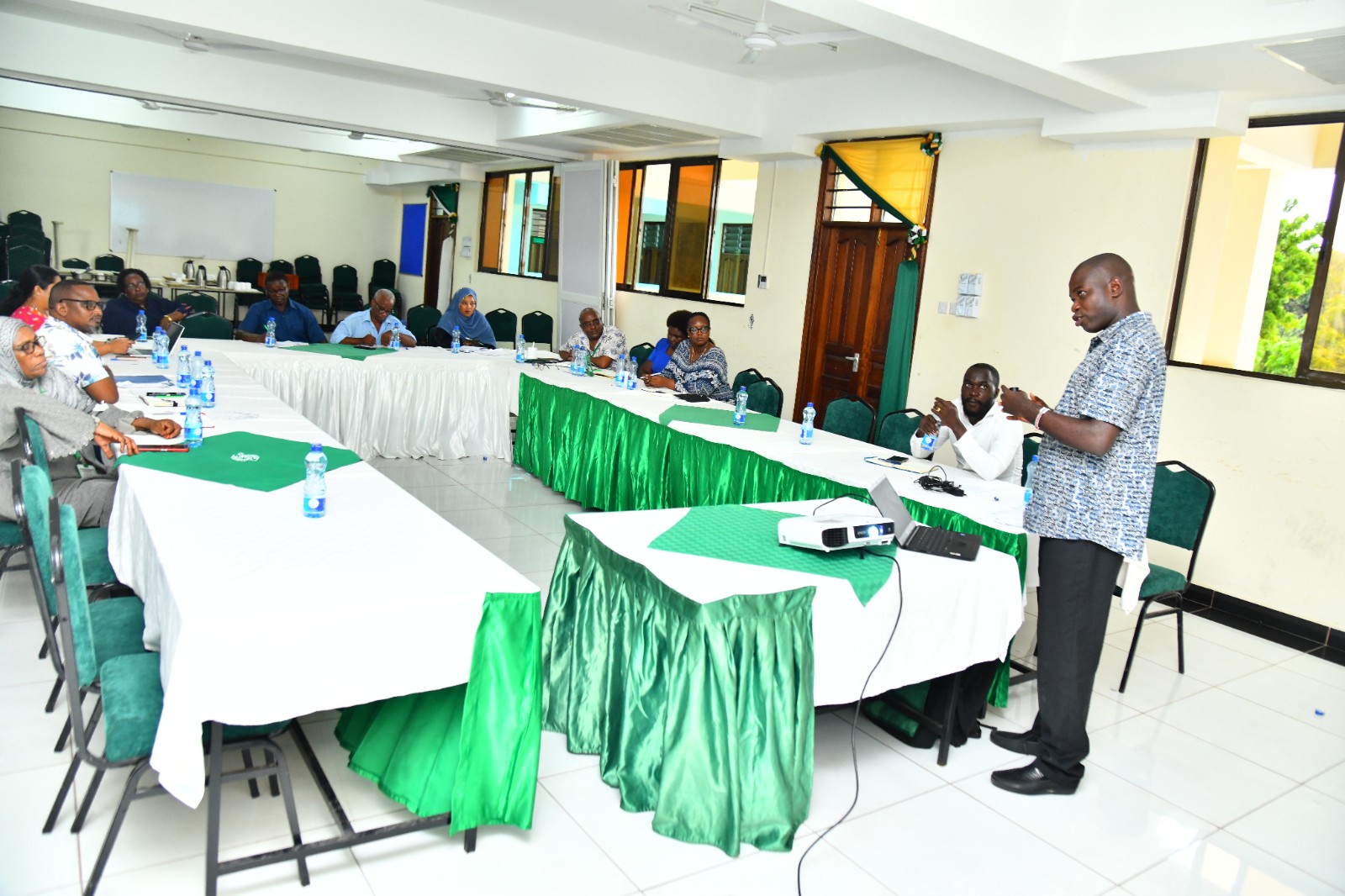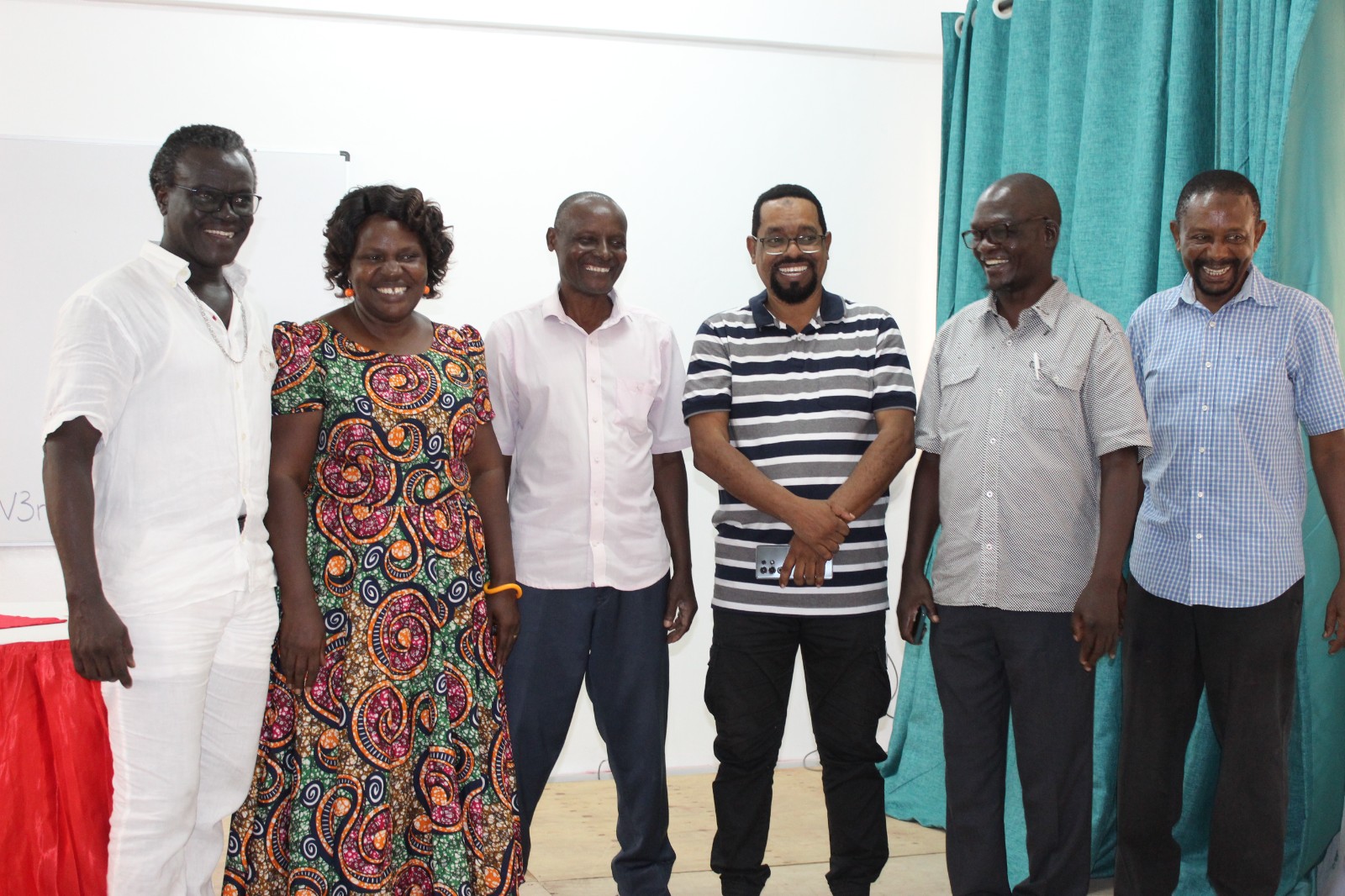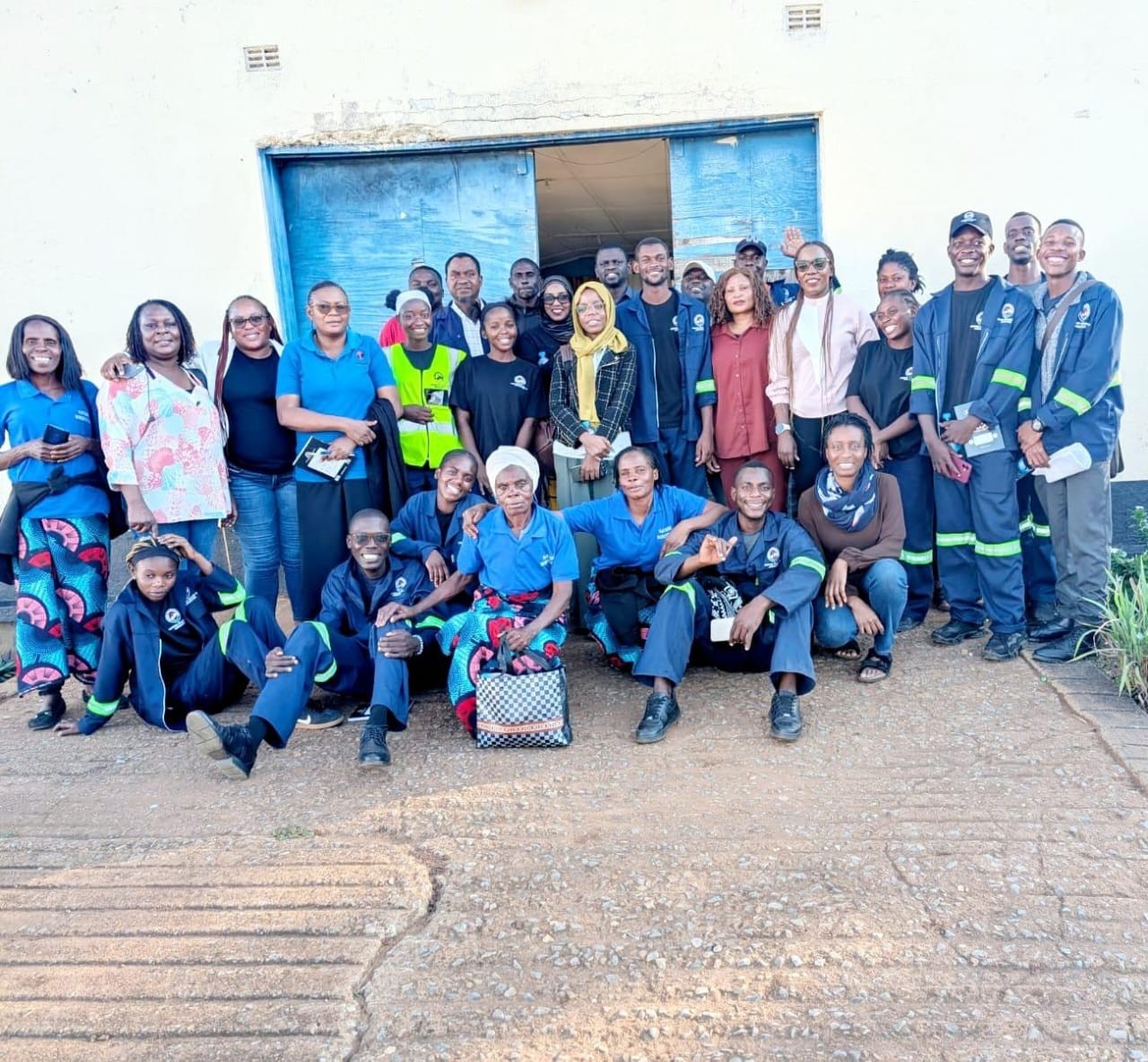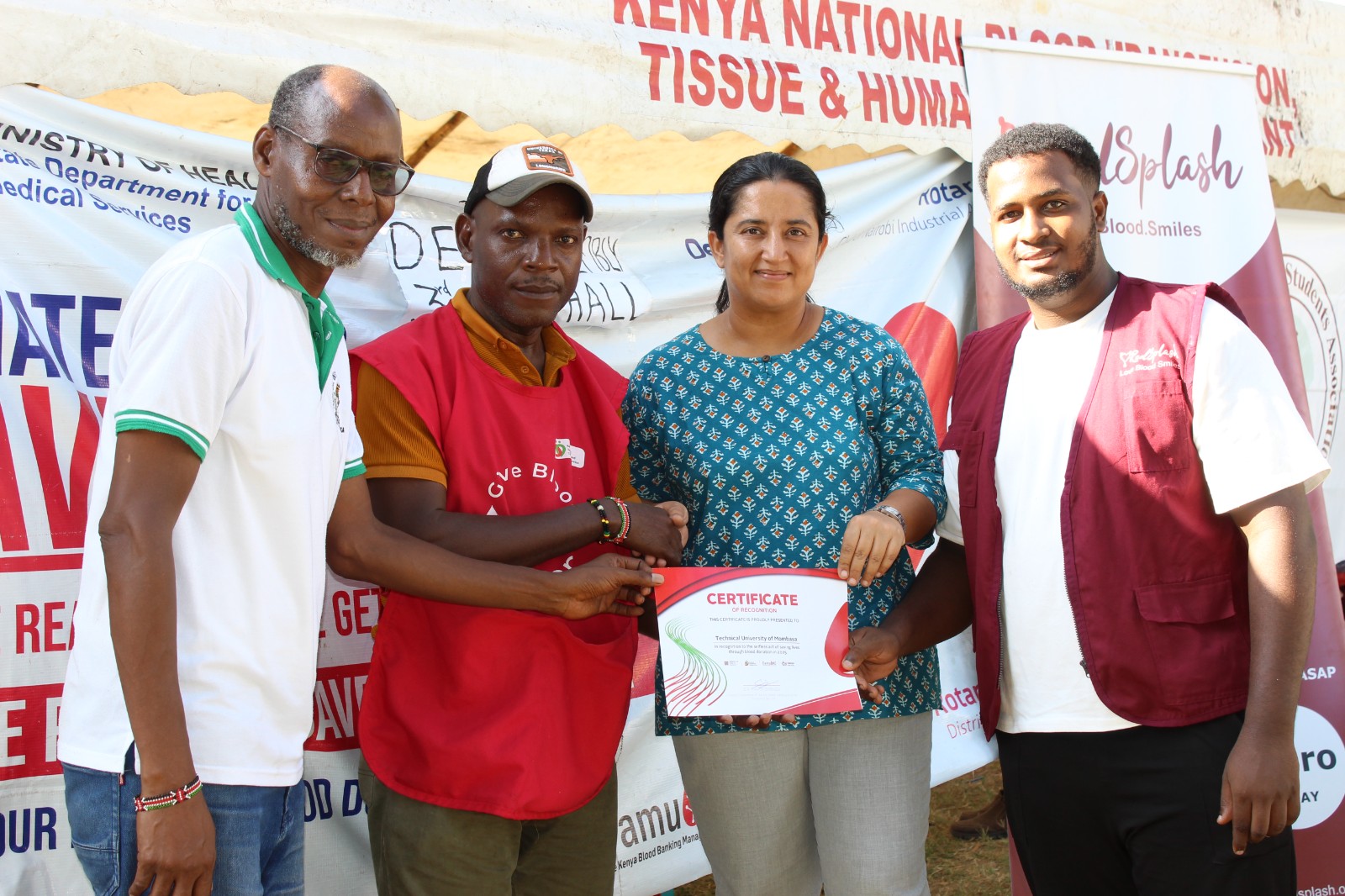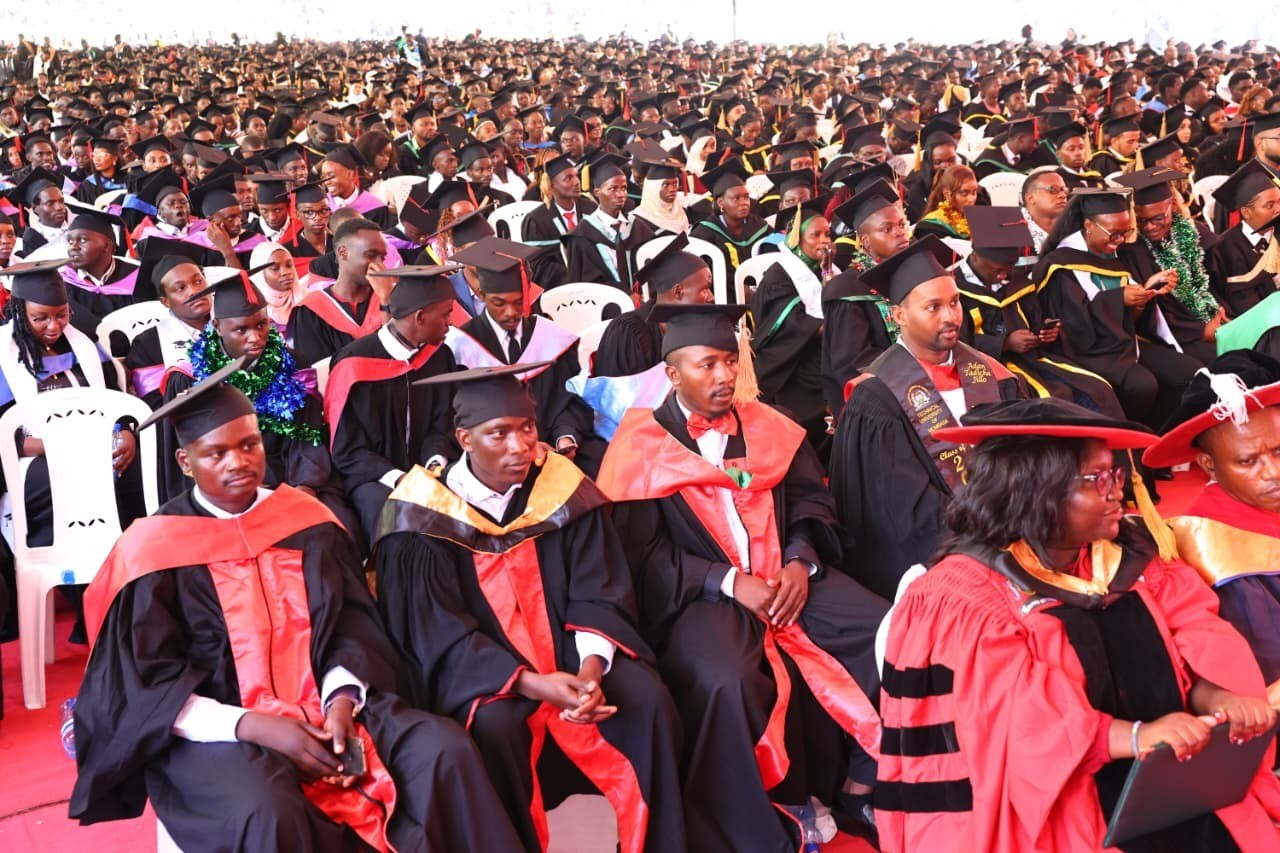By: Mwanamvua Abdallah
The Technical University of Mombasa (TUM) has reinforced its commitment to disability inclusion by conducting a comprehensive two-day sensitization training on disability mainstreaming. This proactive initiative, spearheaded by the TUM Disability Mainstreaming Committee, under the leadership of Chairman Mr. Salim Bakari and Disability Mainstreaming Champion Jonathan Metet, was held on April 22nd and 23rd, 2025, in collaboration with the university's Human Resource Department.
The timely training was facilitated by experienced officials from the National Council for People with Disability (NCPWD): Mr. Edwin Musungu, a Disability Services Officer, and Mr. Mathias Tsuma, the Kilifi County Director of Disability Services. Their expertise was specifically sought in anticipation of an upcoming Disability inclusion audit by the NCPWD. This audit aims to thoroughly evaluate TUM's progress in disability inclusion, focusing on the accessibility of its physical infrastructure – including lecture halls, hostels, the library, and offices – as well as access to crucial information for Persons with Disabilities (PWDs).
Recognizing the importance of a holistic approach, the sensitization training was strategically structured. The first day focused on TUM's management team, ensuring that leadership is well-versed in disability inclusion principles. The second day broadened the scope, engaging general staff from all three of TUM's campuses to cultivate a university-wide understanding and commitment to inclusivity.
Launching this pivotal training, the Technical University of Mombasa's Vice-Chancellor, Prof. Laila Abubakar, emphatically underscored TUM's unwavering dedication to achieving meaningful disability inclusion. She highlighted the university's proactive stance, proudly stating, “As we are all aware, TUM is at the forefront in matters of Disability Mainstreaming, with other institutions often looking to us for best practices.”
Acknowledging the institution's history, Prof. Abubakar noted, "Being an older institution, TUM's initial infrastructure did not fully consider the needs of PWDs. However, we are now diligently ensuring that all aspects of inclusivity are integrated into our renovations." She further emphasized TUM's firm commitment to meeting the national target of a 5% employee representation of PWDs, asserting, “We employ PWDs not only because it is their right but also because TUM needs to be truly inclusive.”
Prof. Laila Abubakar concluded her address with a powerful call to action, urging all attendees to “take care of PWDs and be cognizant of their rights, ensuring we provide a conducive environment where they feel they belong and can be productive. We should strive to cultivate a culture of inclusivity in all our operations.”
Building on this strong foundation, Mr. Edwin Musungu provided TUM employees with a comprehensive overview of the NCPWD's mandate and functions, highlighting the council's significant achievements as well as drawbacks since its inception. He underscored the council's core objectives: to safeguard the rights and promote the rehabilitation of PWDs, and to ensure they have equal opportunities across all aspects of life.
Mr. Mathias Tsuma then delved into the concept of disability mainstreaming and its practical application within the workplace. He clearly explained the various causes and types of disabilities recognized by the council for registration and support purposes. Crucially, Mr. Tsuma effectively addressed prevalent misconceptions and myths surrounding disability, fostering a more informed and empathetic understanding among the participants.
To further empower TUM staff in creating an inclusive environment, Mr. Tsuma provided valuable insights into disability etiquette, offering practical guidance on respectful and appropriate interactions with PWDs. In their concluding remarks, the NCPWD facilitators emphasized the transformative potential of fully embracing disability mainstreaming. They highlighted that by consistently creating accessible environments, implementing reasonable accommodations, adopting inclusive policies, and fostering ongoing education, TUM can cultivate a workplace that genuinely values and supports PWDs. This commitment, they noted, will not only unlock the full potential of all employees but also contribute to a more inclusive and equitable society as a whole.
Notably, the Disability Inclusion Audit revealed that TUM had not only met but exceeded expectations and previous audit recommendations. These recommendations had emphasized the need for buildings to be not just inclusive but truly accommodative to the diverse needs of PWDs, including the provision of ramps for building access and washrooms designed with their considerations in mind. Demonstrating an exceptional commitment, TUM has gone further by training its employees, particularly those in direct contact with stakeholders, in Certificate of Kenya Sign Language (KSL). Furthermore, the university has translated its service delivery charter into both Braille and KSL, ensuring information is accessible to a wider range of individuals.

